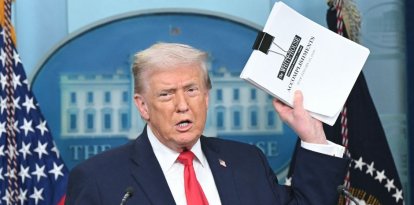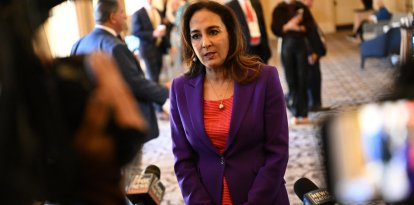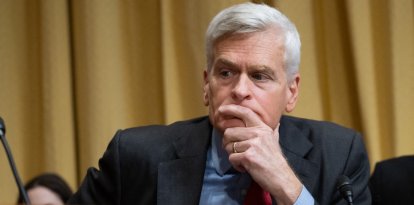Florida Supreme Court rules 6-1 in favor of DeSantis and removes "soft" crime prosecutor
The governor had removed Monique Worrel for allowing "murderers, other violent criminals and dangerous drug traffickers to receive extremely reduced sentences and escape all consequences of their criminal conduct."

Ron DeSantis (Photo by Christian Monterrosa / AFP)
The Florida Supreme Court ruled in favor of Ron DeSantis and upheld the dismissal of State Attorney Monique Worrel. The Republican governor had suspended her in 2023, alleging that her soft-on-crime decisions constituted a "dereliction of duty." The state's highest court ruled 6-1 to uphold the decision of the former presidential candidate.
Presenting herself as a progressive reformer, Worrel was elected in 2020 as state's attorney to the Sunshine State's Ninth Judicial Circuit Court, thanks to the support of Kamala Harris and Bernie Sanders. She even received financial support from Our Vote Our Voice, an organization that took $1 million from the George Soros-backed group Democracy Now, according to the Orlando Sentinel.
However, a little more than two years into office, DeSantis decided to suspend her. "The practices and policies of her office have allowed murderers, other violent offenders, and dangerous drug traffickers to receive extremely reduced sentences and escape the full consequences of their criminal conduct. In some cases, these offenders have evaded incarceration altogether. In some cases, these criminals have avoided incarceration entirely," the governor said at the time.
"State Attorney Worrel’s practices undermine Florida law and endanger the safety, security, and welfare of the communities that Ms. Worrell was elected to serve," he added.
The Democratic prosecutor did not sit idly by and filed a reinstatement lawsuit, arguing that the governor's maneuver was an "arbitrary and baseless exercise of the power of suspension."
The case ended up in the Florida Supreme Court, whose decision was announced Wednesday afternoon. By 6-1, the justices ruled in favor of DeSantis and upheld Worrel's suspension.
"We cannot agree with Worrel that the allegations in the Executive Order are impermissibly vague, nor that they address conduct that falls within the lawful exercise of prosecutorial discretion," the majority opinion reads.
"We have said that a suspension order does not infringe on a state attorney’s lawful exercise of prosecutorial discretion where it alleges that such discretion is, in fact, not being exercised in individual cases but, rather, that generalized policies have resulted in categorical enforcement practices," the judges added.

























